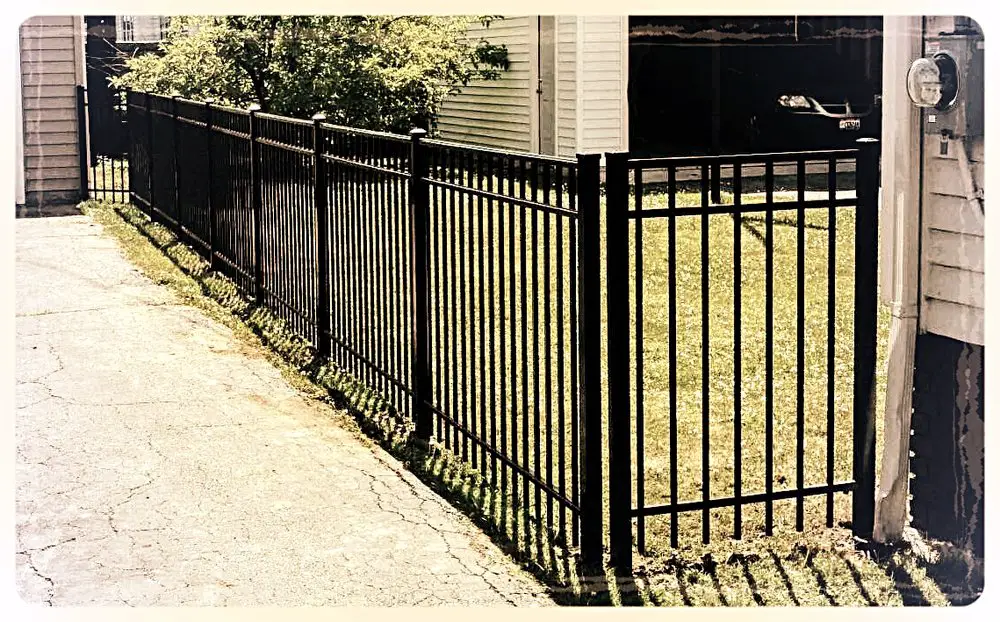Living in a neighborhood with a fence dividing your property from your neighbor’s can be a good way to ensure privacy. However, when your neighbor connects to your fence without your permission, it can be an unwanted intrusion. In this article, we’ll be looking at the legal rights you have when your neighbor connects to your fence without permission, the legal consequences of unauthorized fence connections, the steps to take if your neighbor has connected to your fence without permission, and how to avoid unwanted fence connections in the future as a private property owner.
Table of Contents
When Your Neighbor Connects To Your Fence Without Permission
No one likes to feel like their privacy is being invaded, and having your neighbor connect to your fence without your permission can be a major violation. Whether it’s a neighbor connecting a fence to yours, or someone connecting a fence to a shared property line, it can be a nuisance and a source of stress. It’s important to understand your legal rights when it comes to unwanted fence connections and know how to handle the situation.
What Are Your Legal Rights When a Neighbor Connects To Your Fence Without Permission?
When it comes to a fence on your property, you have the right to control who has access to it and who connects to it. If your neighbor connects to your fence without permission, they may be in violation of local laws or regulations. It’s important to understand the laws in your area and consult a lawyer if necessary. In some cases, you may also have the right to sue your neighbor if they are found to be in violation of local laws or regulations. It can be seen as trespassing or vandalism on and to your property which is a case that can go as far as the courtroom.
The legal consequences for connecting to a fence without permission are determined by local laws and regulations. In some cases, your neighbor may be subject to fines or other penalties for their unauthorized connection. Additionally, they may be required to remove the connection or pay for any damages (on your fence or property) resulting from their connection. It’s important to understand the law in your area and consult a lawyer if necessary. Lawyers can help mitigate the issue.
What Are the Steps to Take if My Neighbor Has Connected to My Fence Without Permission?
If your neighbor has connected to your fence without permission, the first step is to contact them and ask them to remove the connection.
- If they refuse, you may need to take legal action. This could include filing a complaint with your local law enforcement or filing a civil lawsuit against your neighbor. Additionally, you may need to contact a lawyer to help guide you through the process.
- You should not attempt to cut or tear down your neighbor’s fence yourself because that might end up getting you into a lot of trouble with the law. You’d rather just contact the authorities or talk to your neighbor first.
How to Handle the Situation If My Neighbor Refuses to Disconnect from My Fence
If your neighbor refuses to disconnect from your fence, you may need to take legal action. This could include filing a complaint with your local law enforcement or filing a civil lawsuit against your neighbor.
- As mentioned before you may need to contact a lawyer to help guide you through the process. Depending on the situation, your lawyer may be able to help you reach a settlement with your neighbor or may be able to get the court to order your neighbor to remove the connection.
How To Avoid Unwanted Fence Connections From Your Neighbor(s) In The Future
There are several steps you can take to avoid unwanted fence connections in the future. First, be sure to review all local laws and regulations regarding fences and make sure you understand your rights. Additionally, you should make sure to document any unauthorized connections and keep copies of all agreements with your neighbor. Finally, if you are planning to build a fence, be sure to consult with your neighbor in advance to ensure that your plans won’t result in an unwanted connection (and it is you that ends up getting into some legal trouble.)
What Are the Alternatives to Unwanted Fence Connections?
If you are looking for alternatives to unwanted fence connections, you may want to consider installing a privacy fence or adding a gate to an existing fence.
- Privacy fences are a great way to ensure that your neighbor cannot connect to your fence without permission.
- Installing a gate can be a great way to give your neighbor access to your property without having to connect to your fence.
What Are the Benefits Of Legal Fence Connections?
Legal fence connections can have several benefits. First, they can ensure that your neighbor has access to your property while still respecting your privacy. Additionally, legal fence connections can help you avoid costly legal battles and can help you maintain friendly relations with your neighbor. Finally, legal fence connections can ensure that you are in compliance with local laws and regulations, which can help you avoid fines or other penalties like jail time and so forth.
Conclusion
Unwanted fence connections can be an unwanted intrusion and a source of stress. It’s important to understand your legal rights when it comes to unwanted fence connections and know how to handle the situation. In this article, we’ve discussed the legal rights you have when your neighbor connects to your fence without permission, the legal consequences of unauthorized fence connections, the steps to take if your neighbor has connected to your fence without permission, and how to avoid future unwanted fence connections in the future. In the case that you are the victim of such a violation, it would help to get in touch with your lawyer as soon as possible.

